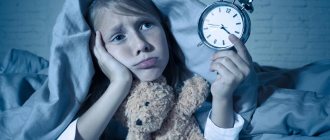Anxiety is a negative mood with feelings of restlessness, tension and fear. In moderation, such emotions are useful: they help mobilize strength and find a way out of extreme situations. But there must be a reason for concern and normally it lasts for a limited period of time.
If a person constantly experiences feelings of anxiety and worry for no reason, this may indicate the presence of a mental disorder. In the absence of help, constant stress wears out the nervous system and the body as a whole, which leads to a breakdown of adaptation mechanisms and the development of chronic diseases.
If you notice that you cannot relax for a long time, then you should think about visiting a specialist.
In pathological cases, a state of anxiety and restlessness for no reason is manifested by both mental and physical symptoms.
Mental symptoms:
- constant feeling of fear and excitement for no reason,
- poor concentration and attention,
- sleep disorders,
- emotional lability, irritability, tearfulness,
- inability to relax and fully engage in daily activities or communication,
- need to reassure other people that everything is okay. At the same time, words of support do not bring relief.
Physical symptoms:
- rapid breathing and heart rate,
- headaches, abdominal and heart pain,
- increased sweating,
- eating disorders: increased appetite or loss of appetite,
- weakness,
- trembling, chills,
- stool disorders: frequent urge, constipation,
- feeling of lack of air,
- nausea,
- muscle spasms and pain.
Unreasonable anxiety and restlessness intensify or subside from time to time. Exacerbations often accompany stress: conflicts, important events, illnesses. Normally, a person quickly recovers after the situation is resolved, but when upset, negative emotions do not go away.
The intensity of anxiety varies from mild to severe. The extreme is panic. If you ignore an anxious state for a long time without a reason, then panic attacks may join it. They strike unexpectedly and sometimes without a good enough reason, but after this episode the person begins to avoid situations similar to the one in which this happened: public transport, an elevator, or just a crowd of people. This greatly reduces quality of life and can lead to social withdrawal.
Why are people worried?
Excitement is an emotion for which the limbic system of the brain is responsible. This part of the brain is virtually uncontrollable, but it plays a major role in human development and survival.
The limbic system works quite complexly. In a dangerous situation, the amygdala stimulates the hypothalamus region of the brain. It, in turn, signals the adrenal glands, which turn on the mechanism for producing stress hormones (adrenaline and cortisol). This triggers the fight-or-flight survival response. It was she who saved our ancestors in life-threatening situations. It turns out that we are the descendants of people who were afraid, worried and anxious, and these emotions are embedded in us at the level of evolution.
Excitement is not anxiety, but a mild form of it. The body of a worried person is alert, and seems to be thinking: “Is there a danger or will it be okay?” If the defensive reaction of “resistance and/or flight” is triggered, then the person begins to have an anxiety disorder.
External factors that cause anxiety are events and circumstances. The internal causes of this condition can be the individual characteristics of a particular person: from the size of the brain to the characteristics of child-parent relationships, upbringing and development.
Eternal anxiety does not allow me to sleep...
“Anxiety makes sense. Although it can be disruptive to a person's life, anxiety can be used constructively. The very fact that we survived means that once upon a time our ancestors were not afraid to face their anxiety,” wrote American psychologist Rollo May. May devoted his entire life to studying the phenomenon of anxiety in the modern world. At the same time, the scientist insisted on distinguishing between two “anxieties”, one of which is pathological, destroys the personality, and the other is an effective incentive to action in a world where risk and unpredictability are inevitable.
Anxiety and Anxiety Disorders
By wise nature, a person has a huge number of adaptive mechanisms for all occasions. One of them is a state of anxiety. The effect of normal anxiety on the body is similar to cocking a trigger - a person becomes excited, tense, full of expectations of danger and ready to fight back. If this state is adequate to the impending potential threat - for example, you are walking along a dark street at night and you are anxious, then it means that the anxiety mechanism has fulfilled its function, putting the body on “combat readiness”.
However, it often happens that the reasons for anxiety are already in the past, but internal tension remains. Gradually accumulating, this condition becomes pathological, and doubts and unpleasant forebodings become permanent. Thus, normal anxiety gradually turns into an anxiety disorder, accompanied by feelings of helplessness, a sense of impending disaster, and a physically debilitating expectation of trouble. Anxiety ceases to be an adaptive mechanism, and a person’s life is filled with constant unreasonable fear.
Symptoms of Anxiety Disorders
According to WHO, 25-30% of the world's population suffers from anxiety disorders during their lifetime. That is, every third. At the same time, women are more susceptible to anxiety disorders, first of all, paying attention to the emotional aspect of anxiety, and only then noticing (or not noticing) the rational grain in it.
It is quite easy to recognize anxiety that has passed into a pathological stage. Along with unjustified worries, anxiety disorders are characterized by increased excitability or fearfulness. Sleep disturbances are often observed - difficulty falling asleep and frequent awakenings in the middle of the night. In addition, people susceptible to anxiety disorders are characterized by fussiness, lethargy, or motor awkwardness.
Also, various complaints about physical well-being are typical for anxiety: weakness, headaches and muscle pain, back and lower back pain (often interpreted as “osteochondrosis”), muscle twitching, etc. These symptoms are largely due to a chronic increase in muscle tone, which accompanies pathological anxiety. Other physical symptoms of anxiety include increased heart rate, tightness or constriction in the chest, shortness of breath, increased blood pressure, trembling, sweating, goosebumps, goosebumps, nausea, diarrhea, abdominal cramps, dry mouth. .
Mental symptoms include feeling dizzy, unsteady, or faint; feelings that objects are not real (derealization) or that the self has moved away or “is not really here” (depersonalization); fear of loss of control, madness, death; narrowing of attention, anger or verbal aggression, feelings of despair and hopelessness, memory impairment.
Treatment of Anxiety Disorders
If anxiety has reached a pathological stage and is causing a significant deterioration in quality of life, you should consult a doctor. The main approaches in the treatment of anxiety disorders are psychotherapy and pharmacotherapy. You can also use some relaxation methods to alleviate the condition - muscle relaxation, calm breathing, distraction. Friendly and encouraging conversation also helps improve the condition.
You can make an appointment with a psychotherapist and visit both in the clinic and take advantage of online consultation. This is especially convenient for patients who cannot come to the clinic for various reasons.
As for medications, doctors most often prescribe benzodiazepine tranquilizers and various antidepressants to anxious patients. All of them have both their advantages and significant disadvantages. For example, benzodiazepines quickly relieve sleep disturbances and anxiety symptoms. However, they have the so-called “rebound” syndrome (rapid resumption or transient increase in symptoms after discontinuation of the drug), the risk of addiction and the formation of drug dependence, impaired cognitive functions (attention, concentration, memory), and impaired coordination. Therefore, drugs of the benzodiazepine group should not be taken for longer than 2-4 weeks.
In turn, tricyclic antidepressants are powerful drugs that effectively relieve all anxiety-depressive symptoms (acting on both physical and mental manifestations of anxiety) and sleep disorders, and can be used for long-term treatment and prevention of anxiety. But they have pronounced side effects (dry mucous membranes, constipation, cardiovascular disorders, transient cognitive impairment), which worsen their tolerability and increase the list of contraindications for their use, especially in patients with concomitant somatic diseases. Any medications used to treat anxiety disorders must be prescribed by a doctor.
Let's blow away stress!
One of the relaxation methods available to everyone is breathing exercise. It is based on the simple fact that without air a person cannot live for even a few minutes. Therefore, holding your breath is a powerful distraction for the body and allows you to escape from the direct influence of stress.
So, the exercise itself. Sit back comfortably. As you exhale, relax and as you inhale, lean back slightly, lift your chin and tilt your head back slightly. Sit up straight and exhale all the air from your lungs. As you exhale, relax. Firmly grasp the edges of the seat with both hands and, as you inhale, pull it up, as if trying to lift a chair. Tighten your arms, stomach, and the rest of your body muscles as you continue to lift the chair you're sitting on. While maintaining tension throughout your body, hold your breath. Exhale slowly through your nose, relaxing your body and letting go of the seat. After exhaling, relax completely. There should be no tension anywhere in the body. Perform three to five such cycles. Determine the time of inhalation, exhalation and breath holding in accordance with your state of health and your breathing rhythm. If you have high blood pressure, then practice only a relaxing breathing method, without a tense phase during inhalation. Then, with each exhalation, release the remaining tension in you, “blowing away” it.
Maria Garasim, psychotherapist at the Scandinavia clinic:
– Undoubtedly, each of us, even throughout the day, repeatedly experiences a feeling of anxiety. Will the boss call, will the deal be successful, has the child successfully passed the exams, is the mother’s blood pressure going through the roof, etc. All these are situations accompanied by emotional stress. We worry, worry, doubt, because we don’t know how and when our problem will be solved or whether our problem will be solved at all. In this case, the anxiety we experience is absolutely justified and is a response to stress. Fortunately, a large number of difficult life situations are resolved one way or another, and anxiety goes away. But if we are under conditions of prolonged, exhausting and uncertain stress, anxiety takes on a pathological character - it is no longer associated with a specific threatening traumatic event, we worry “just like that” and this makes it even worse. We stop sleeping normally, experience headaches and rapid heartbeat, nausea and shortness of breath. We begin to turn to doctors of various specialties - cardiologists, neurologists, pulmonologists... The state of internal tension does not allow us to relax even during rest hours. All life seems dull and joyless. If anxiety has filled your entire life, there is no need to engage in self-rescue. Contact specialists - psychotherapists.
If the cause of your anxiety is your physical condition, remember that it can easily be resolved with a visit to the clinic. For example, you can get a check-up and make sure that everything is in order with your health, and also get tips on improving your lifestyle, which will also help you worry less.
More information about checkups can be found here.
Is anxiety normal?
It’s normal to worry, because worry is our defensive reaction, which does not pose a danger to health. People worry when faced with something unfamiliar because the brain at such moments calculates and evaluates the situation in order to adapt to it, hedge its bets and ultimately cope.
But if a person is constantly worried, then stress hormones have a negative effect on the body. Increased heart rate and breathing, increased blood sugar levels, and altered blood circulation in a regular manner can lead to disturbances in the functioning of the heart.
Treatment methods for phobias
Several methods are used to eliminate pathology - psychotherapy, drug treatment, hypnosis, treatment using virtual reality, physiotherapy, and the NLP method (neurolinguistic programming). The latter implies a special technique “symptom, cause, result, resources and effect.” The second name of the method is rapid treatment of phobias. We use modern techniques and work for results, so we try to use medications only in the most extreme cases.
In what cases should you consult a psychologist?
If, due to anxiety, a person:
- sick;
- cannot perform his/her work efficiently;
- unable to complete necessary daily tasks;
- afraid to appear in society;
- avoids unfamiliar places;
- ceases to control himself;
- feels depressed;
- feels that anxiety is increasing or occurring more often for no apparent reason;
- turns to the “life-saving” effect of alcohol or drugs to relieve anxiety,
then he should think about consulting a psychologist or psychotherapist. The specialist will diagnose the psycho-emotional state, identify the cause of worries and anxieties and offer methods to solve this problem (medicines and psychotherapeutic sessions).
If you wish, you can choose and master a professional retraining course, which will give you the opportunity to study all existing modern psychotherapeutic methods and help yourself and other people in need in the fight against anxiety.
If anxiety has little impact on your quality of life, you can try to cope with it on your own.
Social phobia – is treatment by a specialist necessary or can you manage on your own?
First of all, I want to remind you what social phobia is, why it is dangerous and why its manifestations should not be ignored.
Social phobia, or social phobia, is an anxiety disorder characterized by a fear of communicating and social contacts, performing activities and working while being observed or in the presence of others. The most typical situations that cause fear in a social phobic may be the following: • Speaking in public. • Communication with unfamiliar and unfamiliar people not only through direct contact, but also by telephone. • Conversations with authoritative people, interviews, business contacts. • Eating in public catering establishments - restaurants, cafes, workers' and student canteens. • Personal dates, parties, holidays and other social events. • Being in a crowd, a large flow of people, including at a stadium, concert hall, cinema, supermarket, large office space, etc. • Visiting public toilets. • Participation in team games, dance classes and any other activities that are performed in public and attract the attention of others. Of course, not every uncommunicative or withdrawn person suffers from social phobia. This may simply be a character trait, but an introvert does not experience fear of communication and, if necessary, easily makes contact without any anxiety. A sociophobe is simply horrified by anxiety before an upcoming social contact or going out into the world. Even the most insignificant situation can bring him into this state, for example, a conversation with a seller or another buyer at the checkout, a discussion of some issues in the audience, and even more so, participation in discussions.
A social phobe always thinks that others are much smarter, wittier, more beautiful, more competent and more educated than him. Therefore, he is constantly afraid of ridicule, condemnation, non-recognition and is afraid to express his opinion. Naturally, such a situation not only does not contribute to career advancement, but also hinders the development of a person as an individual, and also significantly worsens the quality of his life.
In addition, the manifestations of a phobia can be so strong that a person prefers to spend most of his time at home, practically not leaving it, working remotely, and ordering groceries and other goods for home delivery. Such a life of a hermit, communication only with a computer or on social networks, a virtual lifestyle deprives a person of a sense of reality and often leads to maladjustment in life. For some time, such a comfortable position for him is quite satisfactory for the social phobic, but sooner or later he begins to realize the futility of such an existence, the lack of communication, the impossibility of starting a family and achieving professional success. Ultimately, such a situation for a person, as a social being, often ends in deep depression with all the ensuing consequences, including suicide. We have found out why fear of society is dangerous, but how to treat social phobia largely depends on its type. It is known that there are two forms of social phobia: • Isolated, single monophobia, when fear arises only in a specific social situation, for example, when eating in public, talking with high-ranking people, doing certain work in the presence of others, even close people. For example, cutting an ordinary salad under the watchful eye of a friend, a picky husband or mother-in-law can turn into a real nightmare - everything will fall out of your hands, the knife will not obey, the oil will overflow, the salt and pepper will spill, and the dish will ultimately earn everyone's disapproval. Naturally, this will only increase the fear and anxiety of strangers in the kitchen. Isolated phobias also include ereytophobia - the fear of appearing awkward, experiencing embarrassment, or, God forbid, blushing in company, especially when there are people of the opposite sex in it. • Generalized social phobia, when the list of situations that frighten a person includes almost all possible contacts and circumstances that require communication with other people at any level. An enhanced avoidance reaction leads to disruption of psychosocial orientation, formation of inadequate adaptation to fears, disruption of social connections, and suffering in all areas of human activity.
It is precisely this kind of extended social phobia that it is no longer possible to fight on your own - you can no longer do without medical intervention, especially when comorbid (combined) mental disorders appear.
Stop the attack with medication
Drugs from the group of tranquilizers (anxiolytics or anti-anxiety drugs) help stop a panic attack if you take the pill at a time when it is still in its infancy.
Tranquilizers cannot be taken by everyone; they are sold by prescription, so they must be prescribed by a psychiatrist or psychotherapist.
Panic attacks. Why don't pills help?
Admit you are having a panic attack
How to understand that you are having a panic attack and get rid of it? During a panic attack, a person catastrophizes what is happening: it seems that it is a heart attack, stroke, death, madness, that you are fainting or about to vomit.
Tell yourself mentally several times: “This is not a disaster, this is a panic attack.” The intensity of your symptoms will decrease and you will begin to regain consciousness.
Beck Scale: Test for Anxiety










